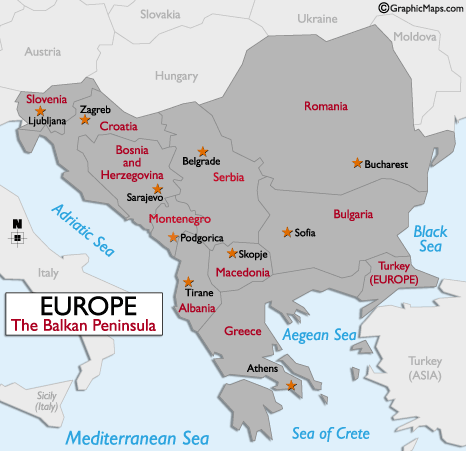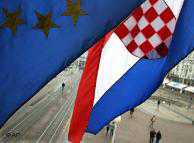VALENTINA POP
20.04.2011 @ 12:35 CET
EUOBSERVER / BRUSSELS – Croatia on Tuesday (19 April) concluded negotiations in two more areas, agriculture and budgetary issues, getting closer to finishing EU accession talks by the end of June, despite a rise in anti-EU sentiments after the sentence issued by the international court in the Hague for war crimes.
“In these politically difficult times, it is extremely important we send a positive message to each Croatian citizen and to each EU citizen,” Hungarian foreign minister Janos Martonyi said during a press conference after chairing the EU-Croatia accession conference.
Martonyi said the target of completing negotiations by the end of June is “ambitious, but achievable,” provided Croatia steps up efforts in fighting corruption and organised crime and in co-operating with the international war crimes tribunal in the Hague.
But with thousands protesting over the week-end in Croatia, burning and stamping on EU flags after the conviction of two generals still celebrated as heroes for their anti-Serb policies during the war in the 1990s, EU’s calls on Croatia to co-operate with the international court in the Hague is striking a sensitive chord.
Speaking at the same press conference, Croatian foreign minister Gordan Jandrokovic said that his government will appeal against some of the formulations of the court’s verdict, particularly the concept of “joint criminal enterprise.”
He gave reassurances that the anti-EU sentiments, which polls put at over 60 percent following the court’s verdict, was going to ebb out in the coming weeks. “These polls don’t reflect the real situation on the ground, in favour of EU accession, which in the past years has been stable at 55-64 percent,” he said.
However, as the court’s top prosecutor Serge Brammertz is due to issue a key report on Croatia’s co-operation with the international tribunal, anti-EU sentiments may rise again. Speaking at the press briefing, EU enlargement commissioner Stefan Fuele said the report will be instrumental in closing the last and most difficult chapter – justice and fundamental rights.
Turkey stalling
Also on Tuesday, a meeting with the Turkish negotiation team merely took stock of the halted process, with Fuele saying talks may be opened in the area of competition in June.
“If Turkey takes the few remaining steps in time, the competition chapter can hopefully still be opened,” he said. “It is in everybody’s interest to give the negotiations a new momentum.”
Turkey and Croatia started the EU entry marathon on the same day, in October 2005, but progress has been much slower with the big south-eastern neighbour.
Ankara has been blaming France and Germany for openly opposing its bid, as well as Greece for blocking technical dossiers.
Only 13 out of the EU’s negotiation chapters have been opened with Turkey and just one of those was completed.
via EUobserver / Croatia moves closer to EU membership, Turkey stalls.




